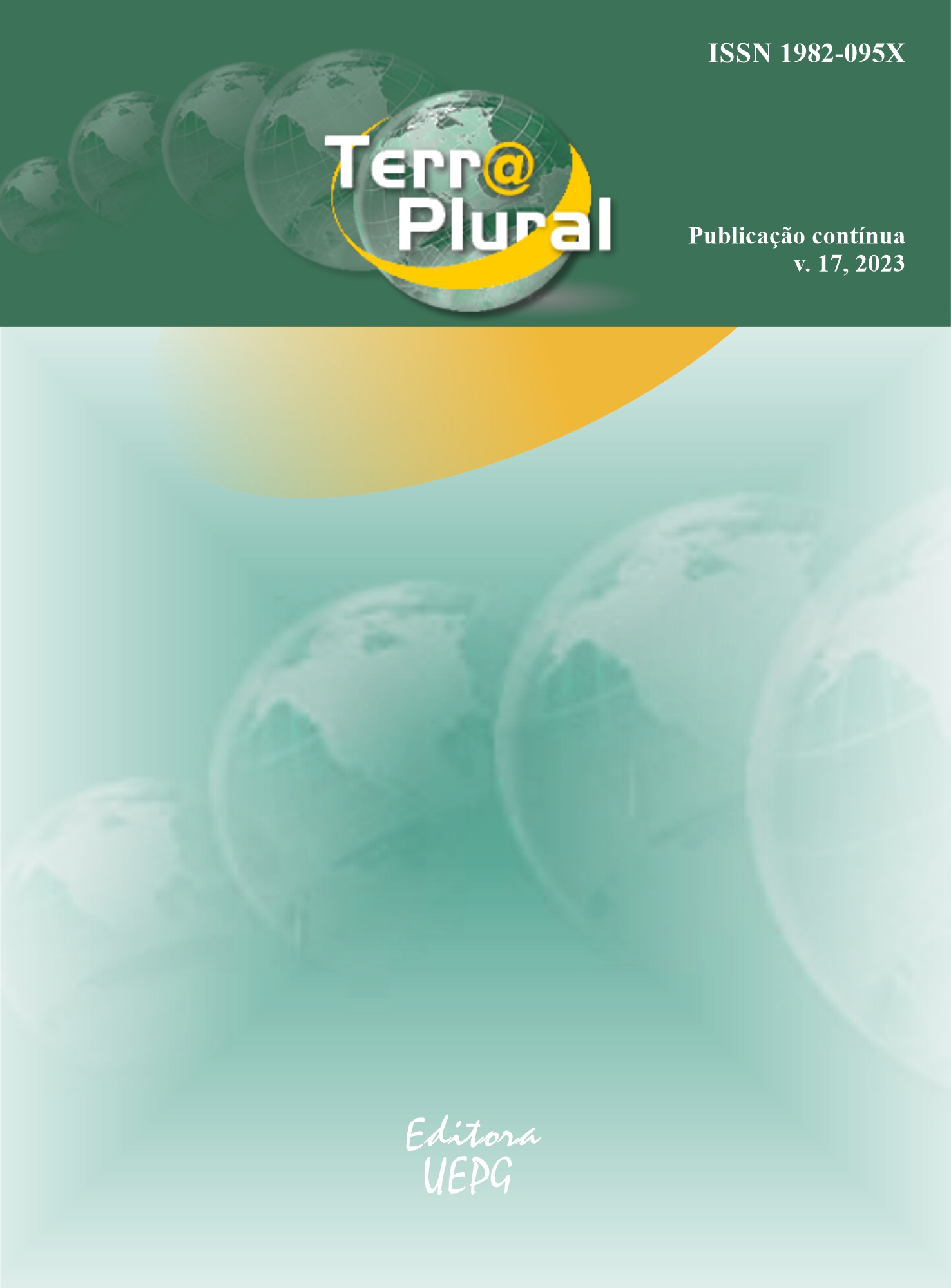O método regressivo-progressivo de Henri Lefebvre para compreender o fenômeno urbano da autossegregação em Cornélio Procópio (PR)
DOI:
https://doi.org/10.5212/TerraPlural.v.17.2321354.010Palavras-chave:
expansão urbana horizontal, espaços residenciais fechados, prática espacial autossegregadoraResumo
Desde a segunda metade do século XX até hoje, a expansão urbana horizontal de Cornélio Procópio intensificou-se em número de formas espaciais, e se acresceu ao seu arranjo espacial a presença dos loteamentos residenciais abertos, loteamentos fechados e condomínios horizontais fechados. Estes últimos, os espaços residenciais fechados, consistem no objeto deste estudo, cujo escopo é compreendê-los como prática espacial autossegregadora, à medida que são analisados a partir do método regressivo-progressivo de Henri Lefebvre. Assim, no momento descritivo do método, busca-se entender o fenômeno e sua configuração atual no presente, já no momento analítico-regressivo, investiga-se sobre a gênese e desenvolvimento do fenômeno em suas diferentes temporalidades, e, por fim, no momento regressivo-progressivo, pretende-se reencontrar analiticamente o fenômeno no presente, para compreender seus conflitos, contradições e possibilidades. Os resultados revelam que tais incorporações imobiliárias são realizadas, muitas vezes irregularmente, em atendimento aos interesses desse setor econômico com conivência do Estado em total desapreço de suas consequências socioespaciais segregacionistas.
Downloads
Downloads
Publicado
Como Citar
Edição
Seção
Licença
Copyright (c) 2023 Coaracy Eleutério da Luz, Edson Belo Clemente de Souza

Este trabalho está licenciado sob uma licença Creative Commons Attribution-NonCommercial-NoDerivatives 4.0 International License.
Os autores mantêm os direitos autorais e concedem à revista o direito de primeira publicação, que permite o compartilhamento do trabalho com reconhecimento da sua autoria e publicação inicial nesta revista. Os autores autorizam a distribuição para indexadores e repositórios institucionais, com reconhecimento da sua autoria e publicação inicial nesta revista. Autores são estimulados a distribuir a versão on line do artigo (por exemplo, em repositórios institucionais ou em sua página pessoal), considerando que isso pode gerar alterações produtivas, bem como aumentar o impacto e as citações do artigo publicado.

Este obra está licenciado com uma Licença Creative Commons Atribuição 4.0 Internacional.















